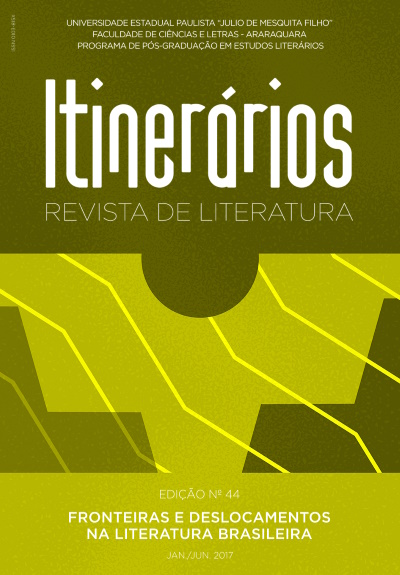Literary representations of displacement: Macunaíma, Vidas secas and Grande sertão: veredas
DOI:
https://doi.org/10.58943/irl.vi44.8980Keywords:
Displacement, Diversity, Narrative, Territoriality,Abstract
This article aims to detect displacement spaces from the attempt of analysis of three of the most significant works of Brazilian narrative of the twentieth century: Macunaíma, Vidas secas and Grande sertão: veredas. The territory detection space to be traversed by the characters of each of these works tend to identify the symptoms of disclosure elements which reflect the importance of successive readings of a country that is revealed from its own people. Each work - from a form and a meaning that are own to them - establishes the need to identify scenarios that are beyond the common census territories visited by fictional perspectives traditionally known. Thus, the works chosen as the scope of this text resize the spatial concept of the earth and the men who mark its presence upon it, by identifying different forms of exercise movements that can set boundaries, whereas in the same way break with this possibility, in view of the size of a country that mimics the gigantism of its continental extension and the smallness of the relationships that victimize its people.Downloads
Published
17/01/2018
Issue
Section
Borders and displacements in brazilian literature
License
Os manuscritos aceitos e publicados são de propriedade da revista Itinerários. É vedada a submissão integral ou parcial do manuscrito a qualquer outro periódico. A responsabilidade do conteúdo dos artigos é exclusiva dos autores. É vedada a tradução para outro idioma sem a autorização escrita do Editor ouvida a Comissão Editorial.

